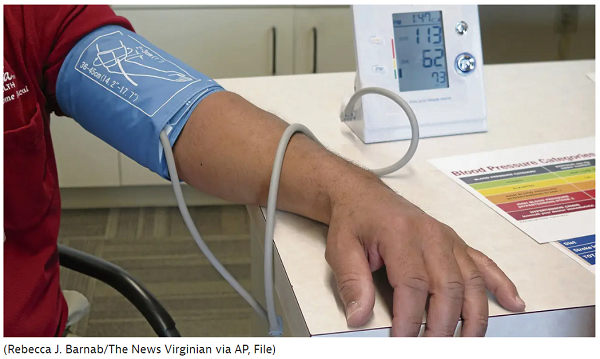Report: Healthcare Needs to Diversify Workforce to Get Rid of Racial Inequalities
by Associated Press
June 26, 2024

Racial and ethnic inequities in healthcare are found in every state in the U.S. despite the passage of legislation intended to improve health outcomes for minorities and increased awareness of healthcare disparities over the past two decades, according to a new national reportopens in a new tab or window released Wednesday.
The 300-plus-page document from the National Academies of Sciences, Engineering, and Medicine detailed how structural racism and people’s surroundingsopens in a new tab or window have contributed to worse health outcomes for minorities. It also offers recommendations and solutions to healthcare organizations and the federal government, like a more diverse workforce and adjusting payment systems to make healthcare more affordable.
Georges Benjamin, MD, executive director of the American Public Health Association and co-chair of the committee that wrote the report, said people of color in the U.S. are more likely to experience maternalopens in a new tab or window and infant mortalityopens in a new tab or window, lower life expectancyopens in a new tab or window, and many chronic diseasesopens in a new tab or window.
“Inequities are baked into our healthcare system, and if we address them, everyone benefits,” Benjamin said.
Racism and bias from healthcare providersopens in a new tab or window have also contributed to worse health outcomes, according to the report, which comes 21 years after the first from the organization.
The committee behind the report suggested that more practicing physicians who are from diverse backgrounds and from the communities they serve would improve several problem areas; studies show that people of color generally receive better care when treated by those who look like themopens in a new tab or window.
The research also showed language barriers persist in healthcare and that trainings on bias management and ways to become more familiar with cultural issues don’t create long-term improvements in health outcomes for minorities.
Healthcare systems should work to strengthen the ties between patients and providers — so the patient has a voice in their treatment — and bring in important community voices, the report recommended.
“Health systems should work with the community to understand what their needs are, and engage them early and often,” Benjamin said.
The policies that have been put into place to bridge racial and ethnic gaps haven’t been widely implemented, the report said, and there’s little oversight to ensure their enforcement. It points out the 10 holdout states that have yet to expand Medicaid under the Affordable Care Act, as well as legal challenges that have halted broad implementation of several provisions.
The report’s authors urged Congress, HHS, NIH, and the Centers for Medicare & Medicaid to better coordinate their healthcare equity plans — which the report said are siloed — and to establish a federal oversight body for the implementation of these plans.
Other suggested steps involve collecting better healthcare data at the federal level and providing more money for research and programs proven to reduce racial and ethnic inequities.
The quality of healthcare in the U.S. is not what it should be compared to other high-income countries largely “because we haven’t addressed health inequities,” said Lisa Cooper, MD, director of the Johns Hopkins Center for Health Equity and one of the report’s reviewers. She said that became even more apparent during the COVID-19 pandemicopens in a new tab or window.
“The only way we will make progress is if we really pay close attention to this issue,” she said. “We’re failing everybody in our healthcare system. It’s just that some groups of people are suffering even more.”
Even if it takes years, the recommendations should be implemented, Benjamin said. If not, he said, people will continue to “die unnecessarily, in…
[READ THE COMPLETE ARTICLE HERE]
